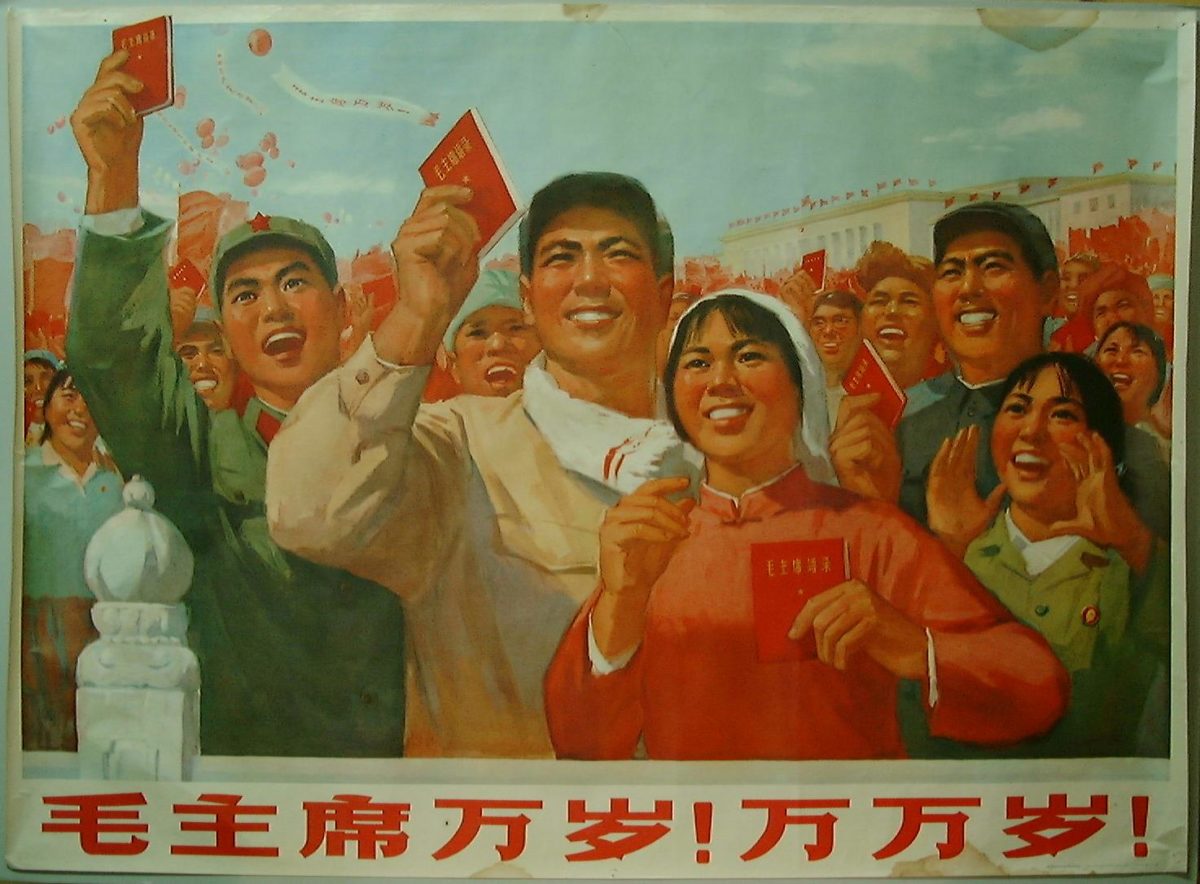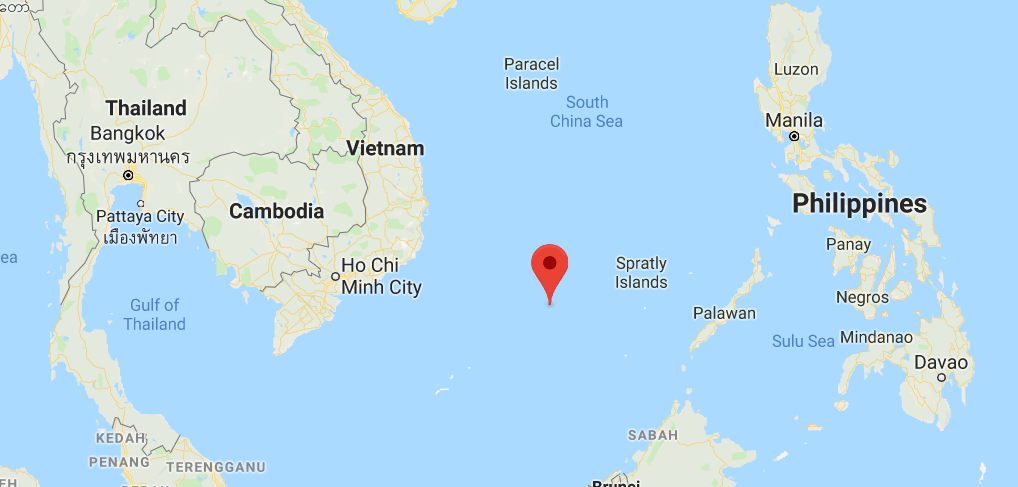In the wake of today’s news about China slapping $60 Billion worth of tariffs on American goods in response to President Trump’s strong stance of trade with China of late, it’s important to take a look at some of the underlying facts.
Mao Zedong took control of China in 1949. The communist party had been a figure in China since 1921. The goals of the CPC (Communist Party of China) was to get rid of any western influence in the country and return to isolated nationalism. When Mao died in 1976, 88% of the population of China was in extreme poverty (earning less than $2 dollars a day) and China’s GDP was less than 2% of the global economy. Mao had been greatly influenced by Stalin’s takeover of the USSR and he was converted to communism due to his admiration of what Stalin had done in the country. He put in place similar ideas in China.

CPC had a little red book at all good communist were to follow and is seen in much of the CPC propaganda.
A revolution is not a dinner party
Or writing an essay, or painting a picture, or doing
embroidery
It cannot be so refined, so leisurely and gentle,
So temperate, kind, courteous, restrained and
magnanimous.
A revolution is an insurrection,
An act of violence by which one class overthrows
Another. -Poem from the little red book
However, in 1978 Deng Xiaoping, who had replaced Mao as the leader of the CPC, saw the devastated state of China and decided that he would open up some of China to the world and that they would “let some get rich first” -Deng Xiaoping.
This was a major change in how things were run as it opened up China to capitalism and trade. At this time Hong Kong belonged to the UK and was planned to be returned to China in 1997. Hong Kong is known for its free markets and extreme prosperity and growth, the closest economy to unfiltered capitalism.
When Hong Kong was brought back into China, its capitalist economy was allowed to remain intact. China and the UK and worked on this for years before the handover was completed. Deng Xiaoping crafted the “One country, two systems.” There is a movement in Hong Kong for independence from China and grows more with the push from the central government to gain more control over the city.
China has seen many benefits of allowing capitalism to continue. The amount of population in extreme poverty is down to 6% and the GDP is now a little over 18% of the global economy.
In 1971 China invited members of the US ping-pong team to China (they were the first Americans allowed to enter China since 1949), Henry Kissinger also made the trip in secret. The United Nations recognized the People’s republic of China shortly thereafter.
Richard Nixon visited China in 1972 and the Shanghai Communique was issued. This was the start of public relations between the United States and China. The trade agreements between China and the United States were renegotiated every year until the year 2000 when a ‘permanent’ trade agreement was signed by Bill Clinton. This action allowed China to enter the WTO. This move was sold to the American people as a way to have more control over China and make the world a safer place.
“Of course, trade with China will not in and of itself lead China to make all the choices we believe it should,” Clinton said. “But clearly, the more China opens its markets, the more it unleashes the power of economic freedom, the more likely it will be to liberate the human potential of its people.”
The Trade deficit in 2018 was $419 million.
In 2008 China became the largest holder of US debt at $600 Billion.
In 2013 Xi Jinping took over as president of China.
In May of 2015, The Philippines warned China over its reclamation of land in the South China Sea (China building a military base on Fiery Cross Reef between Vietnam and the Philippines).

Image: Google Maps screenshot of Fiery Cross Reef
China is on track to pass the United States as the largest GDP by 2030, China is also increasing its military spending to build up a military larger than the United States. With the Chinese Government playing a role in all ‘private companies’ doing business in China, the companies that are headquartered there and yet doing business in other countries must comply with this Government.
More controversy is seen in examples such as Huawei. They are one of the largest cell phone producers in the world, however, there aren’t many sold in the United States. At the end of January Huawei was indicted on 23 counts of alleged trade secrets, theft, and fraud. Google was called out for working with Huawei, as well as Facebook as they gave user’s private information over to them. These companies were put on notice in a U.S. Senate hearing for this. The Pentagon banned the sale of Huawei on US military bases, AT&T and Best Buy dropped partnerships with the company. Australia and the UK also dropped plans to use Huawei to set up their 5G networks.
The persecution of Christians in China is on the rise. They are climbing the list for countries persecuting Christians. Those who are under 18 are not allowed to attend Church. They are kicking out missionaries one by one. There is also a 5-year plan to rewrite the bible to make it more palatable for communism. They are also quietly rounding up Christians and entering them into Xinjiang re-education camps. In these camps, they are berated with propaganda for atheism and nationalism.
The whole idea of a kowtowing to China in trade seems to have moved things in an adverse direction. They are creeping toward more territory, persecuting Christians, and actively attempting intellectual property theft to push them to the top. They are a major global force and are turning back to Maoism with Xi leading the way. They are known by many experts to be cheats on global trade.
President Trump is pushing back, and standing up against the Middle Kingdom. Xi showed up to the table for trade talks earlier in Trump’s first term, and the deal looked like it would happen. Out of the blue, China has decided to back out of many aspects of the agreement.
SEE VIDEO BELOW:
The tariffs imposed by President Trump are a push to bring China back to the table. The markets were rattled by the fear of a longer trade war, but should President Trump be victorious, we will fix the $500 billion trade deficit the United States has with China. These tariffs are an active push to stop ‘Made in China 2025′. The theft of intellectual property helps fuel the movement in China. Americans may be best served to support this move by the President and actively seek out American made products, despite the risks, as this is a long game strategy to put America and it’s businesses first.
Earlier, President Trump took to Twitter in a tirade of sequential Tweets to let the world know his latest thoughts.
SEE TWEETS BELOW:


